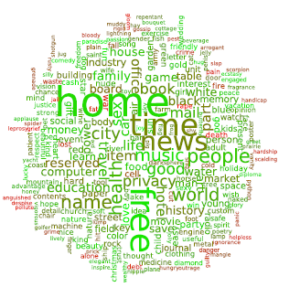 David García, Antonios Garas, Frank Schweitzer.
David García, Antonios Garas, Frank Schweitzer.
We show that the frequency of word use is not only determined by the word length and the average information content, but also by its emotional content.We have analysed three established lexica of affective word usage in English, German, and Spanish, to verify that these lexica have a neutral, unbiased, emotional content. Taking into account the frequency of word usage, we find that words with a positive emotional content are more frequently used. This lends support to Pollyanna hypothesis that there should be a positive bias in human expression. We also find that negative words contain more information than positive words, as the informativeness of a word increases uniformly with its valence decrease. Our findings support earlier conjectures about (i) the relation between word frequency and information content, and (ii) the impact of positive emotions on communication and social links.